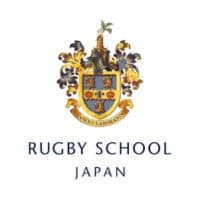When parents think about their child’s future university application, academic results often come to mind first. However, world-leading universities such as Oxford, Cambridge, the Ivy League, and the University of Tokyo are looking for much more than strong grades. But which other qualities are these esteemed academic institutions seeking?
Knowing the answer to this question can help families make better choices about their child’s education. It can also help parents identify schools that develop a broader set of qualities that admissions teams truly value.
The Three Pillars of a Strong University Application
There are 3 core qualities many of the world’s elite universities seek when screening applicants and conducting interviews. And when prospective pupils possess these 3 qualities they become an easy “yes” for admissions teams. The qualities universities screen for are:
- Curricular excellence
- Co-curricular excellence
- Super-curricular engagement
Each of these areas plays an essential role in helping university admissions teams distinguish good candidates from exceptional ones.
1. Curricular Excellence: A Strong Academic Foundation
Top universities expect high levels of academic achievement. At A Level, for example, this often means achieving two A* grades and one A grade. However, excellent results alone are not enough.
Admissions teams are also looking for signs of academic maturity, independent thinking, and the ability to engage with complex subject matter. This is why qualifications such as the Extended Project Qualification (EPQ) are highly valued. The EPQ allows students to pursue an independent research project in an area of interest, developing skills in analysis, argument, and self-direction.
Schools that take an academically ambitious approach help pupils build the habits, thinking skills, and confidence to go beyond simply remembering information. At Rugby School Japan, our small tutor groups and personalised academic support help ensure that each pupil is deeply known and consistently challenged.
2. Co-Curricular Excellence: Developing Skills and Character
Universities are not looking for grades alone. They want students who will bring energy, creativity, and leadership to their campuses.
This is where co-curricular excellence becomes important. Activities such as music, drama, sport, and debate help students build essential life skills. These include time management, resilience, teamwork, and a sense of responsibility.
More than this, co-curricular pursuits reveal something about who a student is. Whether leading a team, performing on stage, or participating in a service project, these experiences shape identity and purpose. Schools that treat co-curricular life as central to education, rather than an optional extra, are better placed to help students build a profile that stands out.
3. Super-Curricular Engagement: Going Beyond the Classroom
Perhaps the most overlooked element of a top-tier university application is super-curricular engagement. Super-curricular activities are academic pursuits that go beyond the standard school curriculum. They include things such as entering essay competitions, attending university lectures, writing blogs or research papers, and completing independent projects related to a future degree subject.
Super-curricular engagement demonstrates a genuine love of learning. It shows that a student is not only capable of learning, but that they WANT to learn. Admissions teams value this because it helps them understand how a student thinks, not just what they know.
Schools that support and structure super-curricular opportunities give their pupils a real advantage. Rugby School Japan, for instance, offers subject-specific societies, university-style seminars, and enrichment partnerships with organisations such as Google and the University of Tokyo.
The Role of the Right School
Developing excellence in all three of these areas requires a school that sees education as more than just test preparation. It requires a learning environment that supports the academic, personal, and emotional growth of every child.
At Rugby School Japan, this philosophy is captured in the school’s guiding ethos: The Whole
Person The Whole Point. Through a balance of academic challenge, co-curricular breadth, and personal care, pupils are given the opportunity to grow into capable, confident, and well-rounded young adults.
This approach helps our pupils gain places at top universities. It also helps them thrive once they get there and after they have graduated. The best schools prepare pupils not just for university admission, but for university success, and for life beyond it.
In Summary
World-leading universities are looking for students who demonstrate more than academic ability. They want to see intellectual curiosity, personal resilience, leadership potential, and a genuine commitment to learning.
The right school can set pupils up for success by nurturing all aspects of their development. When academic excellence is combined with meaningful co-curricular engagement and a
passion for learning beyond the classroom, young people become an easy “yes” for university admissions teams. And they are prepared to make the most of the opportunities they will find there.
